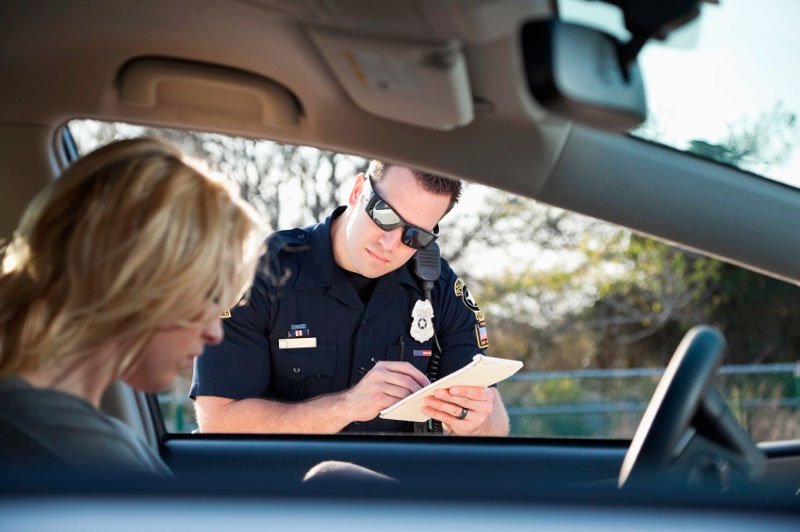Traffic violations do not necessarily have to increase your insurance premiums.
Most drivers think that if they get a fine, the insurance to pay is automatically increased. There is an easy way to avoid this increase, plus it will help you keep your insurance costs low.
Why are insurance premiums increasing?
In order to employ this strategy, you first have to understand why insurance rates may increase. Police officers do not send copies of fines to insurance companies. What they do is enter them in the databases of each state.
These databases allow police officers and judges to see if you have previous violations, and what sanctions they have imposed on you. This way they will know if they should charge you as a repeat offender, or if it is your first such incident.
Due to the aforementioned, although the purpose of the databases is not to inform the insurance company of the violations, they can access this information by searching the database for the “points” that you have accumulated. If they find that your license has “points”, they will know the type of violations you have committed, and will increase your fees accordingly.
The “points” is a system that is used in the majority of the states of the USA, by means of which the infractions committed by the drivers are marked through points, which are included in their driving licenses for a period of time. determined.
Points are identified based on the severity of the incident. For example, depending on the state, a speeding ticket can score 1, 2, or 3 points, depending on how fast the driver is going when stopped by the police.

Those points are added to your license automatically and are reported to the Department of Motor Vehicles (DMV) of your state. If you accumulate a certain amount of points, you can lose your driver’s license for a certain time. Points are removed from the records after a reasonable period of time, so if you receive a speeding ticket in one year and then another 10 years later, the former is unlikely to affect your license points at the time. to receive the second.
How can points be withdrawn from my driving license?
It is in this aspect that you can often obtain advantages, preventing your insurance company from increasing your payments. You basically have two options:
- You can try to have the fine withdrawn in court
- Pay the fine and ask the judge to remove the points from your license
If you choose the first, obviously you should have all the evidence to support your claim that you were not speeding. Don’t think that just showing up at the trial denying the accusation will be enough for the judge to forget about the fine. Police officers have documentation of radar data to deal with speeding lawsuits.
You can access the readings of that radar data at the same time that the police stop you, but not after. If you cannot prove in court that the radar information was not correct, it is highly unlikely that you will be able to avoid liability for the fine payment.
If your violation is not for speeding, make sure you have some kind of document that proves that you are not guilty of the violation. It is always possible to try to get rid of a fine, but you must have the necessary evidence to show it to the judge.
On the other hand, if you decide to pay the fine immediately, and it is the first time you have been detained, many judges may respond to your request to withdraw the points. This means that your insurance company will not be able to raise your fees, as you will have a clean driving record.
As we have said, this strategy works best if it is your first ticket, and if you were not driving at high speed. But if it is in the case of an area where you are only allowed to drive at 30 miles per hour, and you are stopped driving at 90, then the court may not be very understanding of your claim, nor will they want to take away the points for the violation.
Note that judges are not required by law to remove the “points” from license violations. However, there is nothing to lose if you request that service from the judge during the hearing, as long as you have strong evidence to support your reasons.
